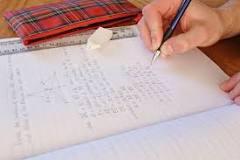Homework

Below you will find some guidelines on learning at home as well as a whole school overview of homework to help provide you with a clear picture on the school’s stance on home learning. The learning at home booklet has some useful guidelines or thoughts for parents and pupils, as well as clearly stating what school will do.
Please remember when looking at the overview that although there is a general pattern where each section corresponds with a particular class, the skills are hierarchical i.e. a child will usually only move on to the next one when they have mastered the previous step. This is particularly important when you remember we have a number of mixed age classes, but it does allow you to see the progression. Class 1 home learning activities on the grid are aimed at the Year 1 pupils in the class. EYFS2 pupils’ home learning is explained in the Induction Booklet. We have not included any additional activities that might be part of an Individual Education Plan or specific arrangements with a particular child – these will continue to be arranged through Mrs Draisey or through dialogue with your child’s class teacher. It also does not include some of the extra work which is given to the Y6s to help with their SATs preparation.
Home learning can often prove a tricky issue for children, parents and schools to manage, however we believe by working together we can make it a success. The activities set by teachers are not optional but we hope that by working together it should become less of a battle, more enjoyable for the children (and yourselves) and help them with their progress. We are very fortunate to have the high levels of support and engagement from home and appreciate the time you spend with your children on school learning whilst juggling clubs, activities and general family life.
The three most common questions asked are as follows:
“How much help should I give them?” - (Think how your children learn at school. Staff don’t expect them to learn in isolation, we give support, guidance, show them new skills or make sure they are safe if using particular tools or materials. Work and learn alongside them, talking and help them develop their ideas, skills and understanding, whilst still trying to develop resilience and independence.)
“Should I correct their work?” – (Again, follow our school line. Firstly prevention is better than cure, so careful planning and some thought as a piece is being completed should reduce the amount of editing at the end. But if there is a need, choose the most important aspects for your child and ensure that it is a positive learning experience rather than their feeling completely demoralised.)
“How much time should we spend on a task?” – (This is linked a little to the child’s own age and a 10 – 30 minute focused burst is much more effective than spending a couple of hours on something whilst at primary school. However sometimes a project of learning log type activity will take longer or a child might become particularly engaged with a piece. Quality always outweighs quantity – and for some children, developing this skill can be harder than the more common issue of time management.)
If you have any further thoughts and questions, please do not hesitate to get in touch with Mr Borman.



Close